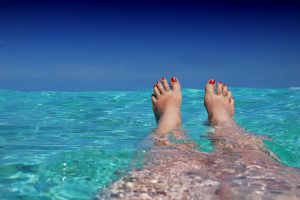Definition of Hydrotherapy

Hydrotherapy: Water has been used medicinally for thousands of years, with traditions rooted in ancient China, Japan, India, Rome, Greece, the Americas, and the Middle East. There are references to the therapeutic use of mineral water in the Old Testament. During the Middle Ages, bathing fell…Read more
Explore Hydrotherapy research in the following databases:
PubMed Trip Cochrane*
*The Cochrane database requires users to enter the search term manually. Enter “hydrotherapy”
AI Search: Access Semantic Scholar’s results on hydrotherapy.
Semantic Scholar
Learn more about our 3 research databases and AI search platform HERE.
Research Spotlight
The databases often return hundreds of medical studies for a single wellness approach. This section summarizes a sampling of five studies – providing just a taste of the available research.
-
Cold Plunges Produce Cellular Changes, Improving Autophagic Function Linked to Longevity
A small 2024 study from the University of Ottawa (ten young males) closely examined how seven days of one-hour cold plunges affected cells at the molecular level, looking at its impact on autophagy (the body’s cleaning out of damaged components) and apoptosis (programmed cell death). They found that repeated cold exposure significantly enhanced autophagic function, a cellular protective mechanism that helps cells better manage stress and that may possibly hold implications for health and longevity. The researchers noted that, “Cold exposure might help prevent diseases and potentially even slow down aging at a cellular level. It’s like a tune-up for your body’s microscopic machinery.” They are eager to expand studies to include older adults and people with chronic conditions.
Access this study on hydrotherapy - Study Indicates Frequent Baths Very Good for Your Heart
A 2020 observational study from Japanese researchers (over 20 years, following 30,076 men and women) found that compared with people who took baths less than twice a week, those who took baths three to four times had a 25 percent lower risk of coronary heart disease and a 13 percent lower risk of stroke. Daily bathers had a 35 percent lower risk of coronary heart disease and a 23 percent lower risk of stroke. The researchers argued that the simple practice of taking bathslowers blood pressure and improves blood vessel function.
Access this study on hydrotherapy - Hot Springs Bathing Lowers Stress in Japan’s Bathing Monkeys
A small 2018 study from Kyoto University analyzed snow monkeys from the Nagano region famous for soaking in natural hot springs, and found that these macaques’ stress hormones declined significantly when they were bathing. There appears to be evidence of not just physical – but social – value of thermal bathing: the higher-ranking monkeys spent more time in the pools.
Access this study on hydrotherapy - A Hot Bath Delivers Health Benefits Similar to Exercise
Most cultures believe in the benefits of thermal bathing. And a small 2017 study from Loughborough University (UK) indicated that passive heating improves health. An hour-long hot bath burned as many calories as a half-hour walk, and led to positive changes in inflammatory response similar to those following exercise.
Access this study on hydrotherapy - Hot Springs Found to Relieve Chronic Pain, Depression and Insomnia
A 2017 study from Australia’s RMIT University (surveying 4,265 hot springs users) found that bathing in hot springs provided significant relief for severe back pain, arthritis, injury, chronic pain, depression, anxiety and insomnia.
Access this research on Hydrotherapy - Hydrotherapies Can Reduce Pain in Fibromyalgia Sufferers
In a systematic review (2014, University of Freiburg) of randomized controlled trials on balneotherapy’s and hydrotherapy’s efficacy in managing fibromyalgia, both therapies showed either moderate to strong evidence for pain reduction and in improving health-related quality of life. Larger studies needed.
Access this research on Hydrotherapy
Studies-in-Progress/Clinical Trials Underway
A clinical trial is any research study that assigns people to health-related interventions to evaluate the outcomes. “Interventions” include drugs, surgical procedures, devices, behavioral treatments, preventive care, etc.
- ClinicalTrials.gov: explore trials underway in the U.S.
- World Health Organization: explore trials happening across the globe. When you reach WHO’s search page, please type in “hydrotherapy.”
Access all studies currently available for Hydrotherapy in these databases:
PubMed Trip Cochrane* Semantic Scholar
*The Cochrane database requires users to enter the search term manually. Enter “hydrotherapy”























































